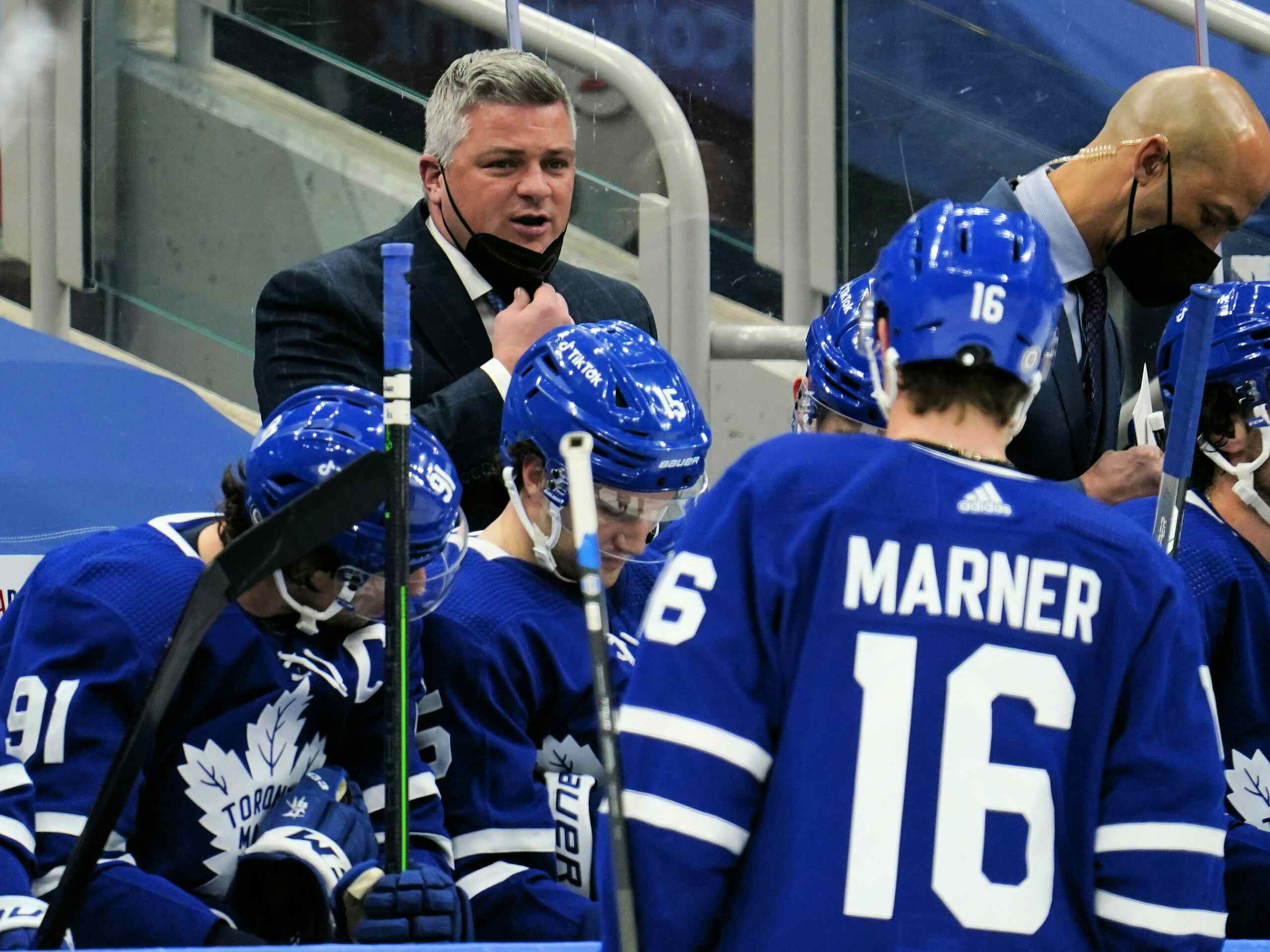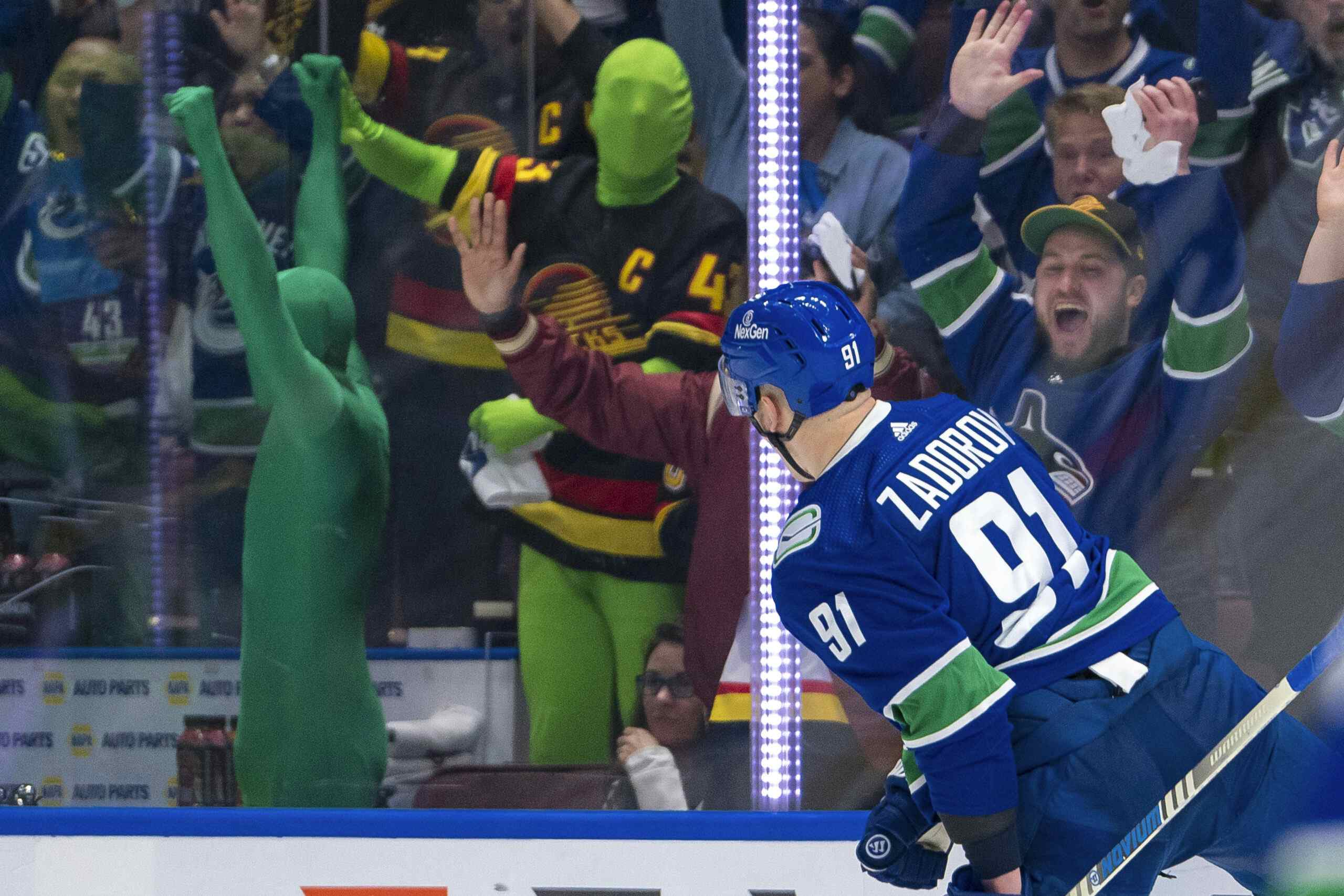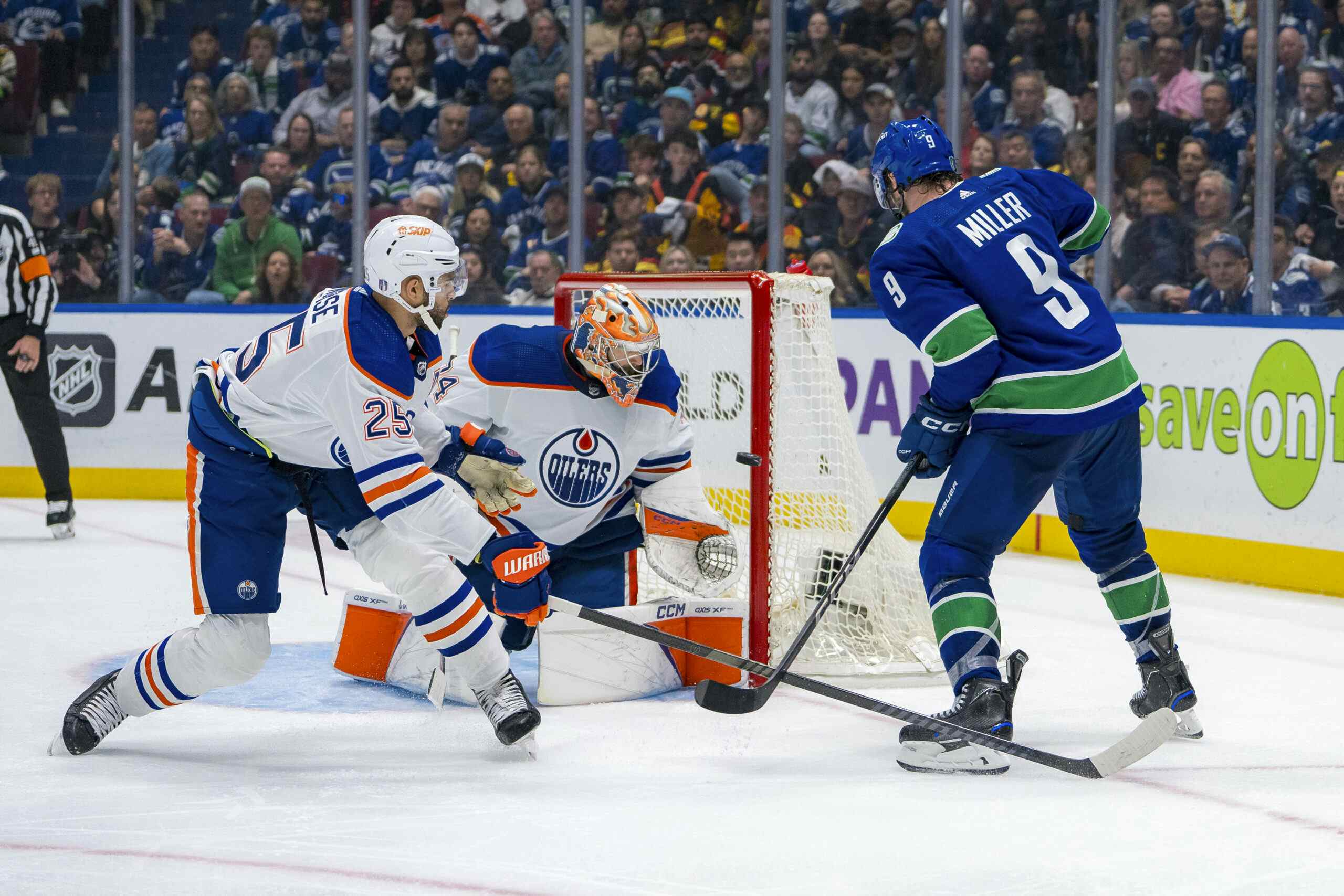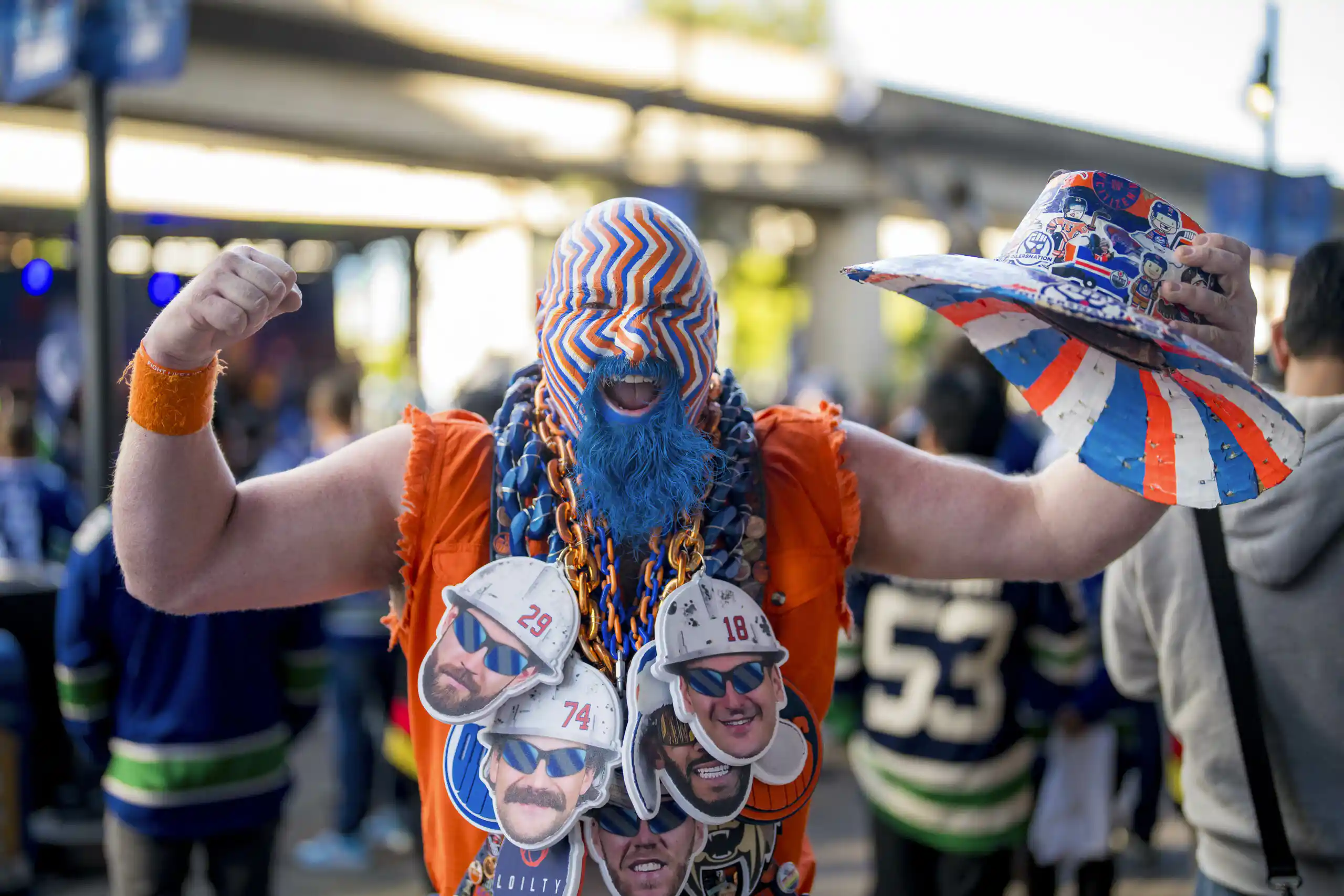An autopsy of the Edmonton Oilers 2021 trade deadline

By Zach Laing
3 years agoThe belle of the 2021 trade deadline ball was traded over 12 hours before the deadline, when Taylor Hall got shipped to the Boston Bruins.
The Bruins got great value in the deal also picking up Curtis Lazar for Anders Bjork and a second round pick. It’s a price that the Oilers, even without a 2020 second round pick this year, should’ve stepped up to pay.
So why didn’t the Oilers get in on the action? The Oilers were in a sense limited without that pick but had other assets they could’ve parted with to try and make something work.
Heading into the deadline we knew a few things about where the Oilers were at: Oilers GM Ken Holland wanted to add an impact player, if anything, but didn’t want to part with this 2021 first round pick. The only way that pick would’ve been moved, he said, was if it were for a player with term. That in and of itself likely took the Oilers out of contention for Hall and his services, despite my belief Edmonton should’ve been willing to part with the pick.
Holland did some looking around and spoke with general managers from all the teams outside of the playoff picture looking for help, but wasn’t able to close the deal on anything for a forward, impact or not.
“We weren’t really close,” he said of his search for a forward. “I don’t know that there were impact forwards (available), but they were NHL forwards.
“Money was tight, assets were tight. I felt the priority was to get a little bit deeper on the backend.”
But the problem is that the Oilers weren’t willing to get creative to be able to add the needed forward help the team needs right now. When Connor McDavid, Leon Draisaitl and Ryan Nugent-Hopkins aren’t on the ice at 5×5, the Oilers goals for per hour is a measly 1.58 — nowhere near where it needs to be.
For comparison, when Toronto’s top three scorers (Auston Matthews, Mitch Marner, John Tavares) aren’t on the ice, the Leafs have a 2.29 goals for per hour.
Toronto and Tampa Bay, for example, both paid premiums for assets in Nick Foligno and David Savard, respectively, who may put their teams over the top in their hunt for the Cup. It’s clear Holland didn’t feel the Oilers were one piece, or a few pieces, at least, away from a Stanley Cup.
Holland has been fairly coy about Hall.
“I’m not sure if i can answer those questions,” he said to media members 30 minutes after the deadline passed. “I’m not really going to get into it, I’m not sure if I can talk about other teams’ players. No, the answer is no.”
The market, too, wasn’t really great for rental forwards. The best forward beyond Hall was Nick Foligno, who cost the Leafs more than a first round pick.
Sam Bennett got shipped to Florida for more than what Hall cost Boston, Carl Soderberg returned to Colorado, Michael Raffl was traded to Philadelphia, Mattias Janmark went to Vegas. None of these players really move the needle a whole lot, and the Oilers are probably better off not having moved any assets for these UFA’s.
But hours after the deadline passed, Holland was on Sportsnet’s Tim and Friends where he let slip the Oilers may have been more in on Taylor Hall than what he had lead onto.
“Cap space obviously factored into lots of decisions,” said Holland. “I was aware of everybody that was moved today, or for the most part everybody that was moved today. I made decisions I felt were in the best interest of the franchise.”
It was a more direct, while still roundabout answer than he gave hours before, and it’s clear Edmonton weren’t interested in dancing around the salary cap the way they would’ve needed to.
And while Edmonton could’ve tried as hard as they wanted to, it sounds like Hall wanted to join the Boston Bruins.
“But with a no-move clause as part of his Buffalo agreement, the (Hall) steered the conversation toward Boston when Sabres GM Kevyn Adams went looking for trade partners,” wrote The Athletic’s Fluto Shinzawa. “Not only did this put (Bruins GM) Sweeney atop the list of suitors, it also reduced Adams’ trade demands because he had no other serious bidders.”
There’s belief that there was a serious bidder from the western conference, and the DFO Rundown’s Frank Seravalli said on the podcast yesterday it may have been either Vegas or Colorado, both of whom who were looking to stock up for a playoff run.
Through it all, the Oilers kept their powder dry on making any big moves.
As I wrote yesterday, I like the move to bring in Dmitry Kulikov. The big knock on him, however, seems to be consistency. He’s a bit of a streaky player and when he makes mistakes, the tend to be big ones. Nonetheless, he’s going to add more depth to an already deep Oilers blueline.
At the very least he’s going to push a guy like Kris Russell down the lineup where he’s going to play some softer minutes.
Edmonton is still a good team. They’re going to make some noise in the playoffs and have a solid chance at winning at least one playoff round.
The hope is that Holland’s work yesterday sets the ground work for what could very well be the most important offseason in the Oilers franchise history. Edmonton has key UFA’s in Ryan Nugent-Hopkins, Adam Larsson, and Tyson Barrie, also while having to get Kailer Yamamoto, an RFA, a new deal.
Don’t forget about fixing the goaltending situation long-term, as well as trying to fill out the rest of the roster. Holland will have at least $22.5-million to play with and that’s without moving on from James Neal and Mikko Koskinen’s contracts.
Zach Laing is the Nation Network’s news director and senior columnist. He can be followed on Twitter at @zjlaing, or reached by email at zach@oilersnation.com.
Recent articles from Zach Laing





